
Advertisement

 |
Advertisement
|
 |
Oil well Zumaque I in Zulia state is a historic relic of Venezuela. 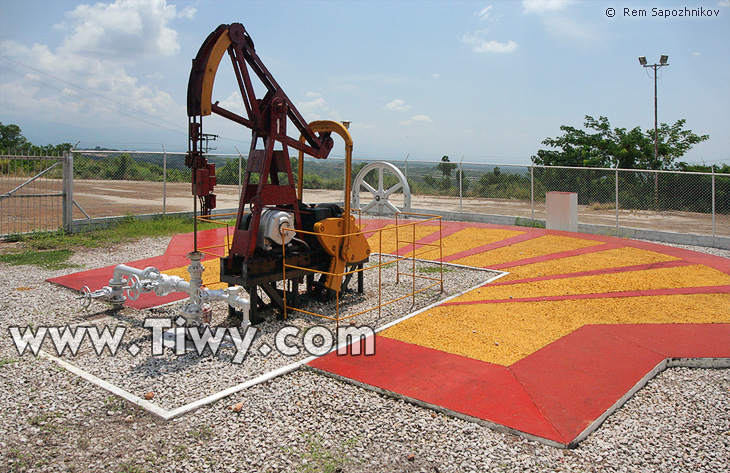
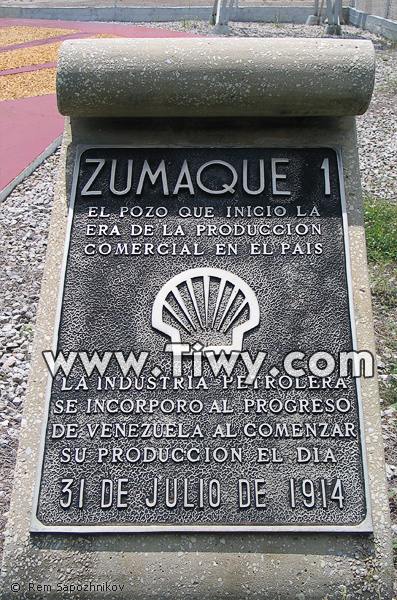
A tourist that turned out to be in Caracas will be definitely shown the building of PDVSA, petroleum headquarters of the Bolivarian Republic of Venezuela. 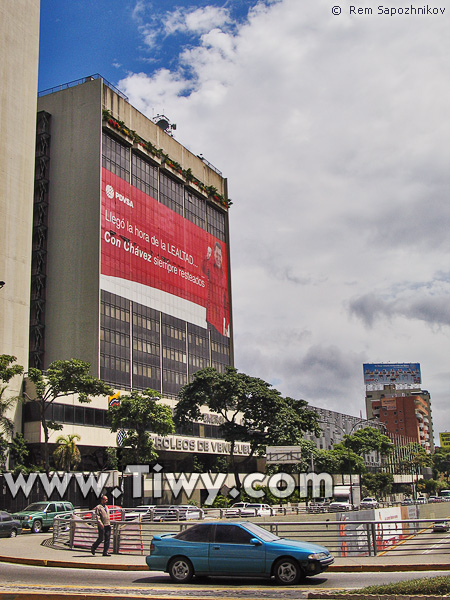
Sculpture composition — oil derrick on a palm — a symbol of the new stage in the history of PDVSA: the main wealth of the country now belongs to the people! 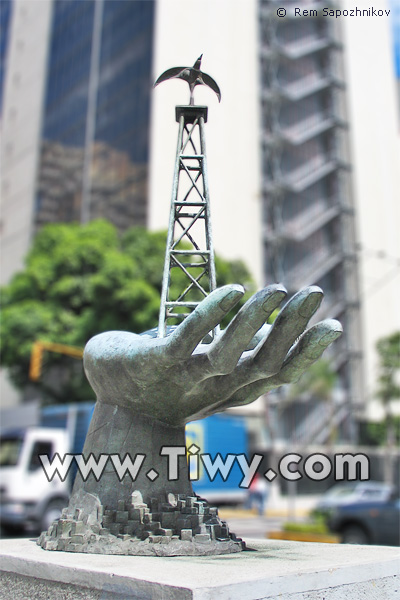
Near the main building of PDVSA there is a restaurant with a «petroleum name». It is not distinguished by special luxury. The restaurant is kept afloat thanks to an electronic totalizator. Risky gamblers but not oilmen cluster there together. 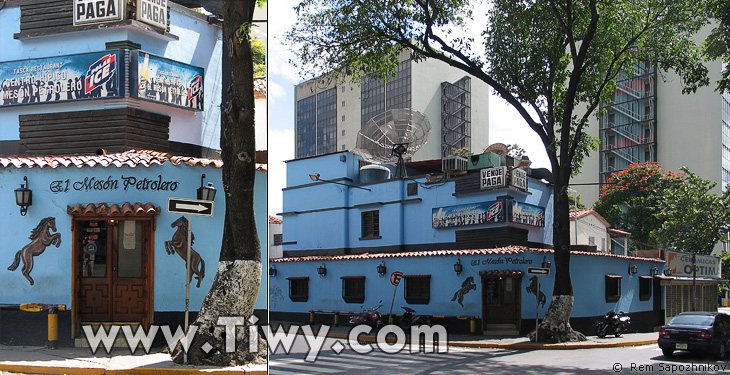
Minister of energy and oil of Venezuela Rafael Ramirez and present employees of PDVSA are devoted participants of manifestations and meetings in support of the Bolivarian republic and president Hugo Chavez. 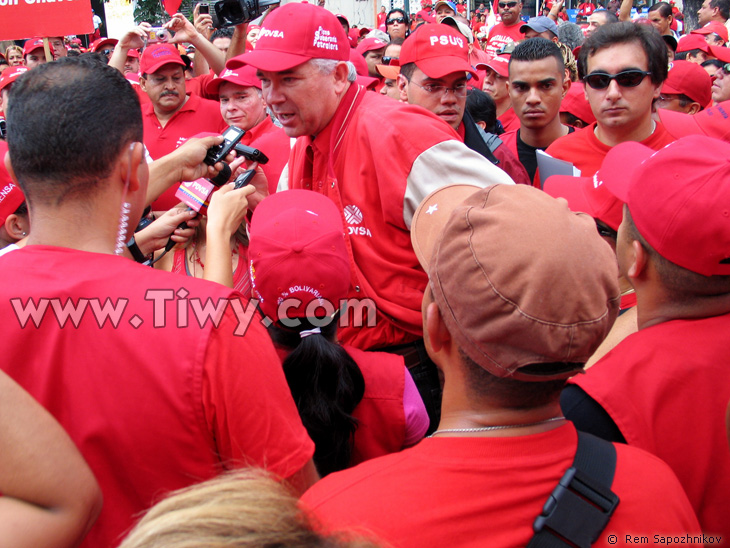
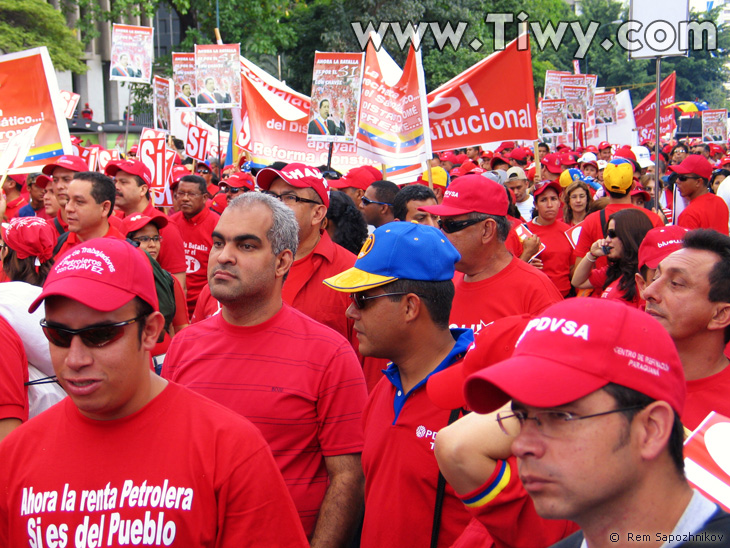
In any trip about Venezuela you are accompanied by endless oil and gas pipelines. They are gladly used for election campaign both by chavists and oppositionists. 
Venezuela is literally «swimming» on top of oil. You can see drilling machines everywhere. I came across this one on my way from El Tigre to Ciudad Bolivar. 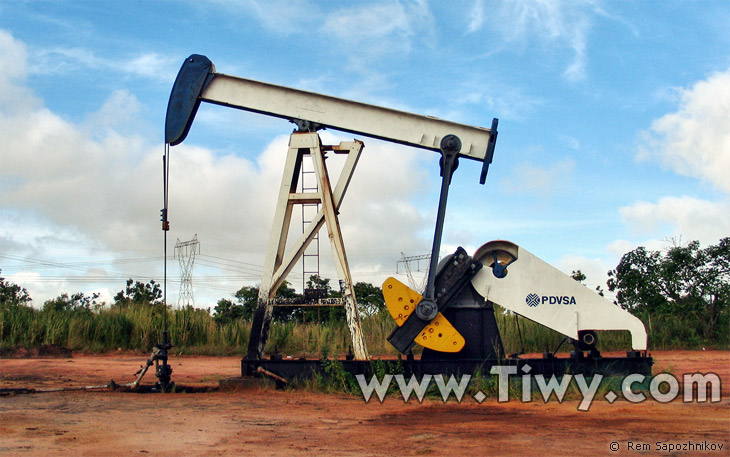
I used to take pictures of this outwardly unpretentious jack pump several times, and at that with interval of two, three and four years. And all this time it tirelessly supplied oil on the surface. Apropos, the photo of this jack pump, published at Tiwy.com used to become the object of plagiarism more than once, including the mass media of Venezuela itself. 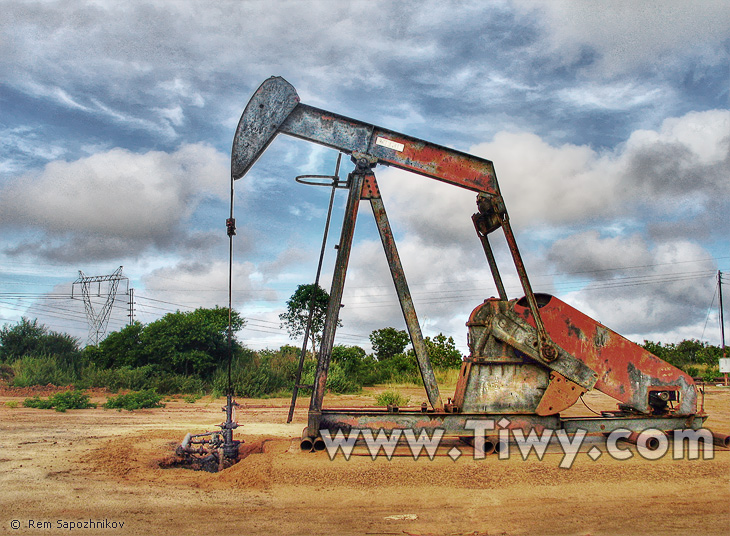
In many cities, the past of which was connected with oil, the frozen «unemployed» jack pumps can be found as monuments. They were needed when oil was present, and nowadays, these are sad, the pensioners that have served their time. 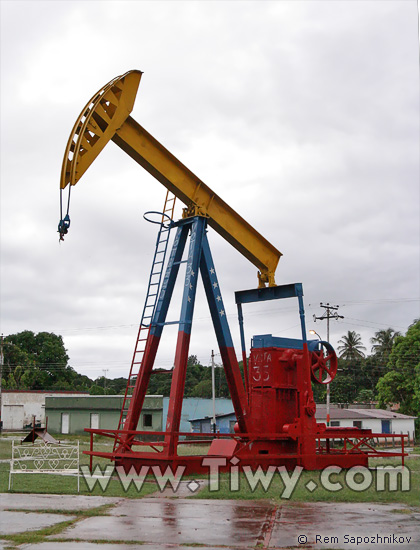
I came across most of the workaholic jack pumps in the vicinity of the Maracaibo lake. It is in this region there is the best quality and the most convenient for processing «light» oil. On this oil, mainly western allies of the USSR, fought in the years of the second world war. 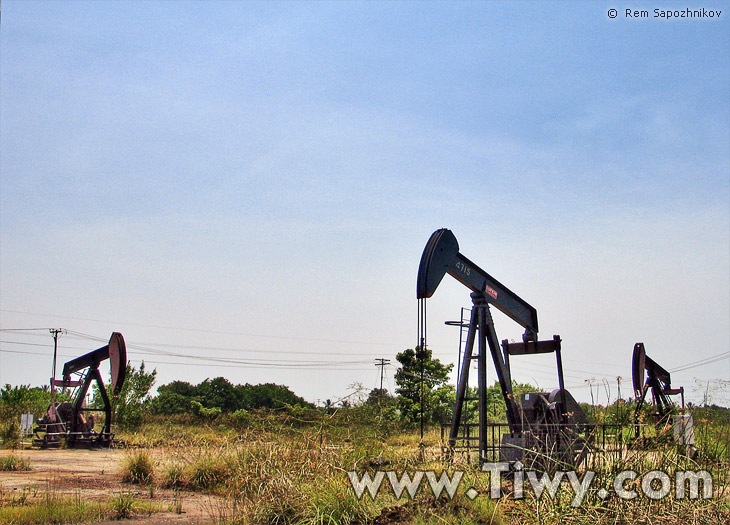
The city of Maracaibo is the unofficial oil capital of Venezuela. A lot of rich people that do not «favour» the Bolivarian authorities and personally commandante Hugo Chavez. Separatist tendencies, that are quietly heated up by the United States, are strong in Maracaibo. 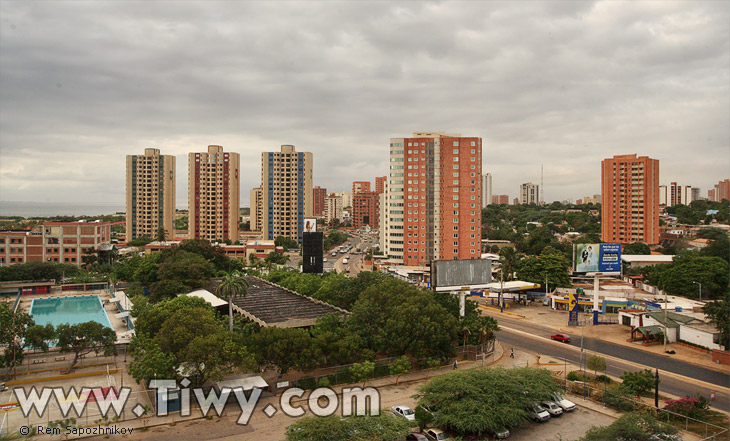
Falcon state — is the most important center of oil processing. The modern complex Cardon on the Paraguana peninsula produces an unforgettable impression on such fanatics of industrial landscape as myself. 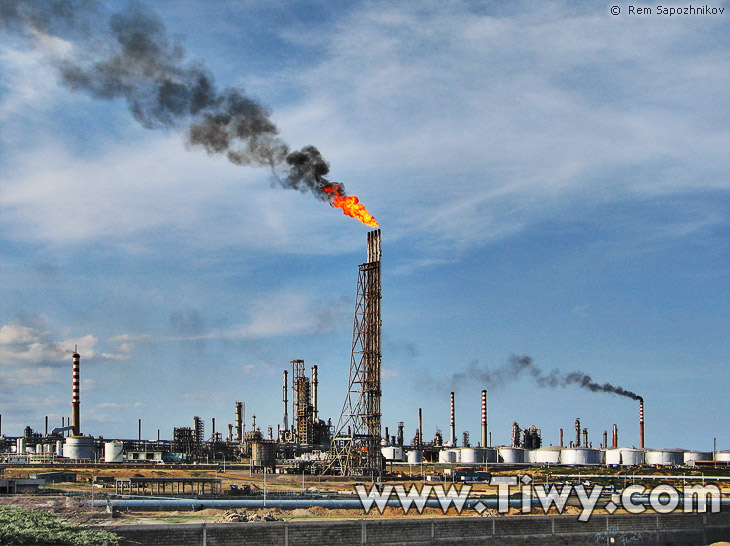
Cardon refinery provides employment to residents of Falcon state and good quality petrol to the whole country. 
From any point of the town Punto Fijo on Paraguana one can see an «eternal flame» of Cardon refinery. 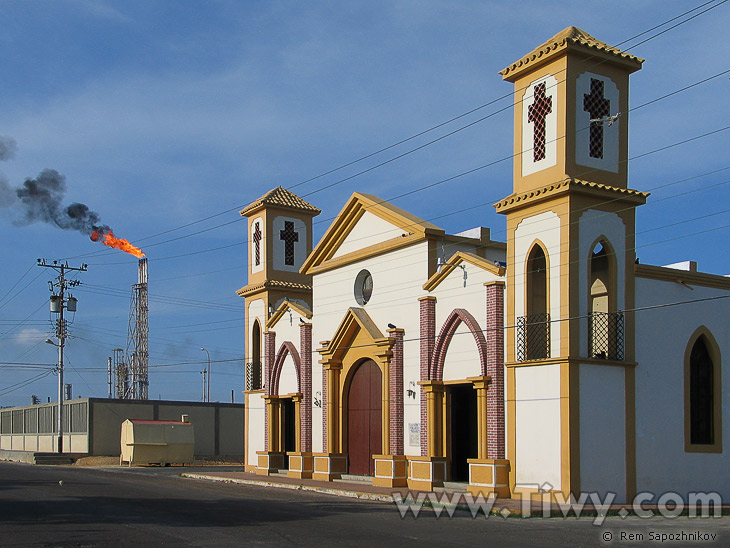
Another impressive oil refinery complex is situated on the Caribbean shore, right at the approach to the city of Puerto Cabello. 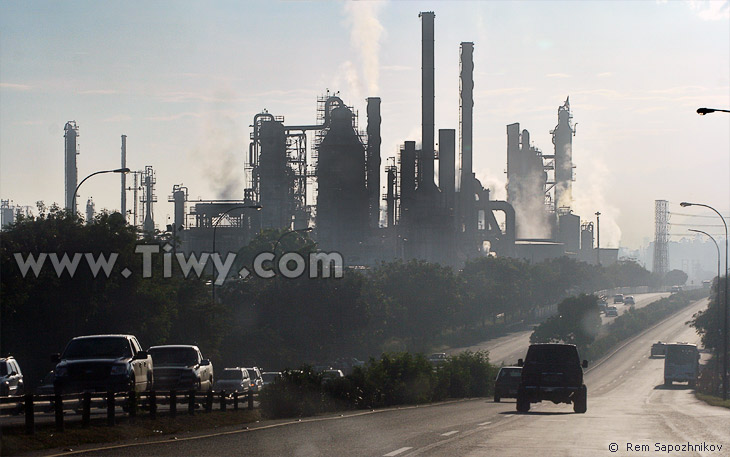
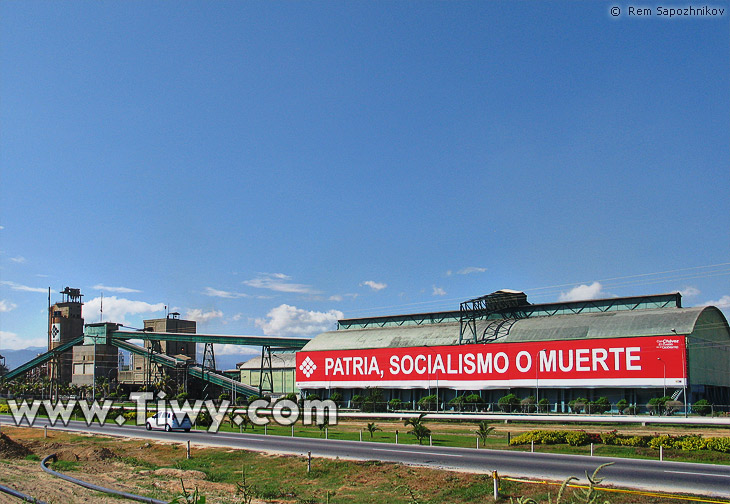
Along the Caribbean shoreline — between the cities of Piritu and Barcelona there is the largest in Latin America petroleum refinery complex Jose Antonio Anzoategui. 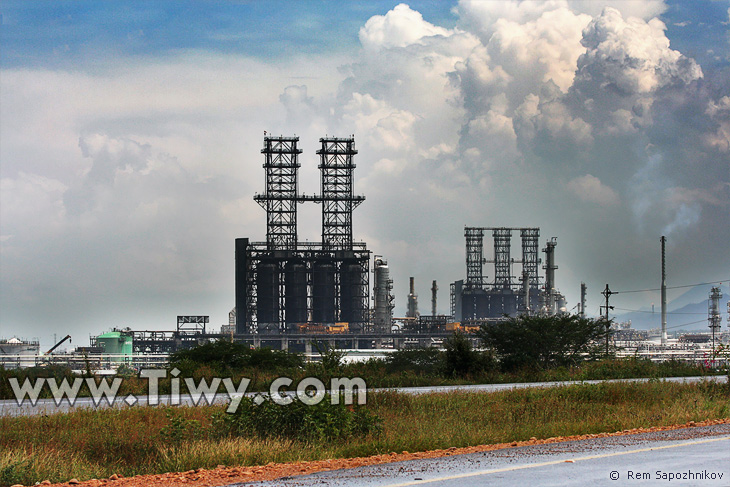
Active preparatory works are under way for development of oil-gas deposits in the bay of Paria (Sucre state) and at the mouth of the Orinoco river (Delta Amacuro). Stentorian call of progress is heard out loud in these areas, that got used to a calm pace of hunters and rattling of fishermen spinning rods. 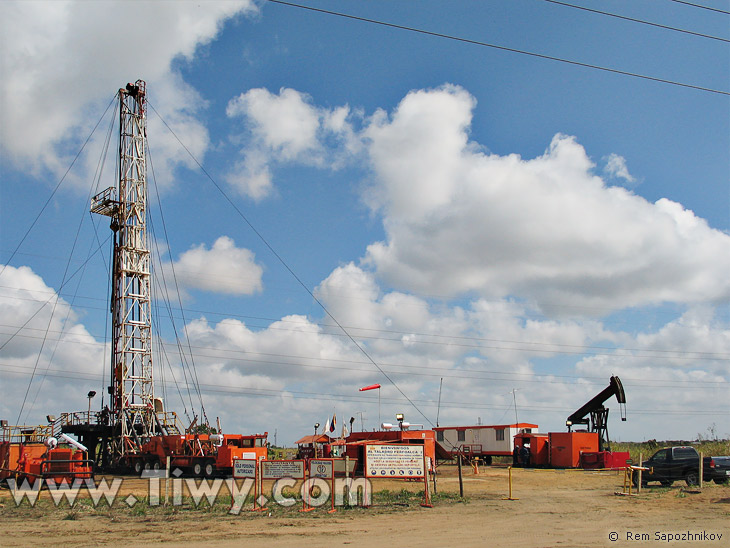
The considerable portion of petrodollars is spent by the Hugo Chavez government for improvement of living standards of Venezuelans, its poorest layers. The number 1 task is solution of the housing problem. Ugly huts and shacks of sheet metal and card board yield their place to hundreds and thousands «people's houses». Never before has the power of Venezuela paid so much attention to people's needs. 
|